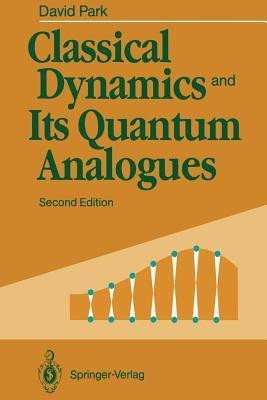Classical Dynamics and Its Quantum Analogues(English, Paperback, Park David)
Quick Overview
Product Price Comparison
The short Heroic Age of physics that started in 1925 was one of the rare occasions when a deep consideration of the question: What does physics really say? was necessary in carrying out numerical calculations. In many parts of microphysics the calculations have now become relatively straightforward if not easy, but most physicists seem to agree that some questions of principle remain to be resolved, even if they do not think it is very important to do so. This situation has affected the way people think and write about quantum mechanics, a gingerly approach to fundamentals and a tendency to emphasize what fifty years ago was new in the new theory at the expense of continuity with what came before it. Nowadays those who look into the subject are more likely to be struck by unexpected similarities between quantum and classical mechanics than by dramatic contrasts they had been led to expect. It is often said that the hardest part of understanding quantum mechanics is to understand that there is nothing to understand; all the same, to think quantum- mechanically it helps to have firm mental connections with classical physics and to know exactly what these connections do and do not imply. This book originated more than a decade ago as informal lecture notes [OP, prepared for use in a course taught from time to time to advanced undergraduates at Williams College.


